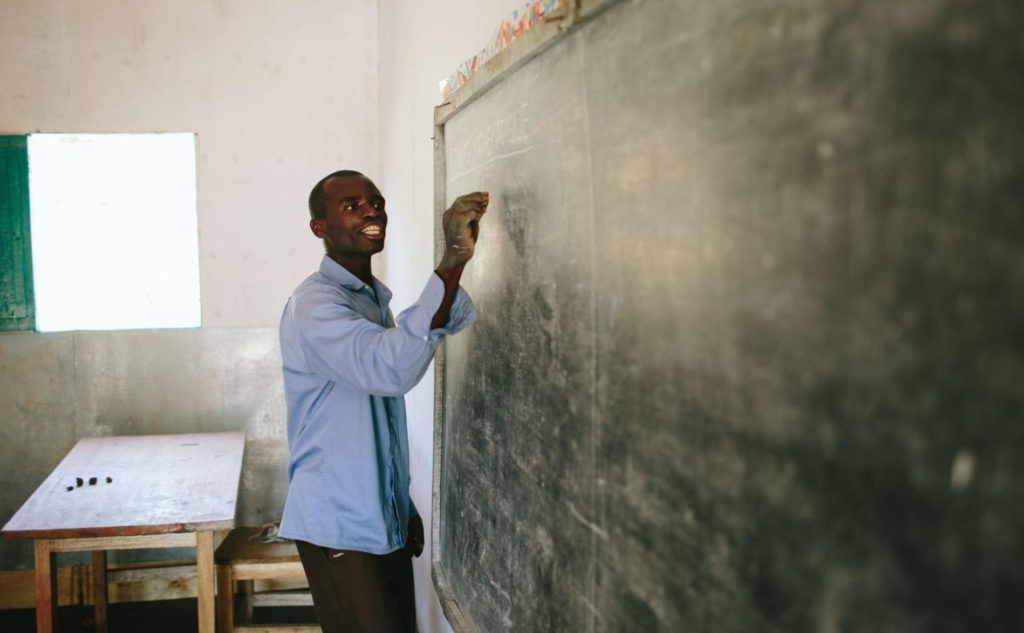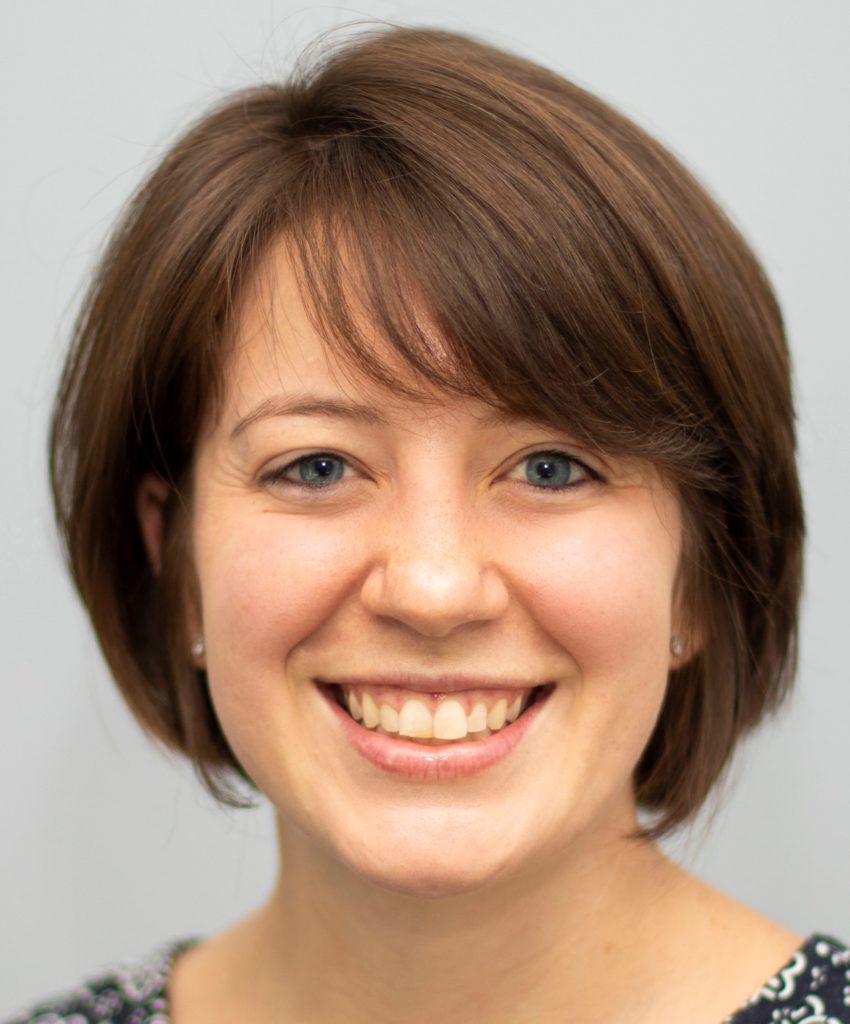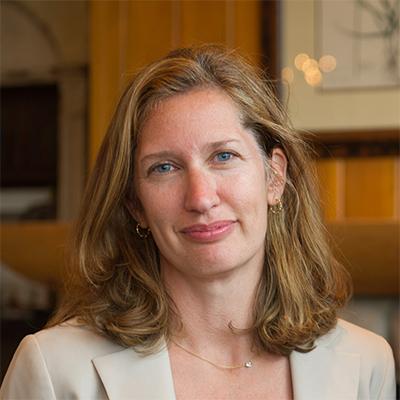A note from Robin: The Center on Reinventing Public Education is expanding its focus on innovation by studying international developments that might inform pandemic recovery and reinvention in U.S. public schools. Follow The Lens (or better yet, subscribe to our newsletter) as we highlight education reform strategies from other countries.

In the 2022-23 school year, the pandemic has given way to lingering political conflict, budgetary challenges and human resource shortages. Schools need models that demonstrate how to address inequity through innovation without burning teachers out. Some of the best examples are emerging from developing countries, where the Covid-19 pandemic joined the long and continuous list of schooling challenges.
“We operate in a context of protracted conflict and crises,” said Ee-Reh Owo, schools director of Justice Rising International, an organization educating children in war zones.
“We’ve had Ebola epidemics, volcano eruptions, insecurity, and regular school closures, so learning outcomes are chronically low because there are so many crises to face and overcome,” she said. “Covid-19 was a new one, but not more challenging than the other challenges.”
Rather than falling back on old methods, many global organizations have seized the opportunity to go beyond pandemic “recovery” by including teachers as key stakeholders. Similarly, in the United States, teachers must be trusted to advise on contextual needs and relevant solutions in our public schools.
Teachers in central Africa help shape reading, math lesson guides
Justice Rising deliberately included educators in the pilot of Chalkboard Guides, or structured lesson guides in foundational literacy and numeracy, in the Democratic Republic of the Congo and in Cameroon. The guides were designed to introduce powerful tweaks to traditional resources for reading instruction, like workbooks and lesson guides.
“This is an innovation to make it one less thing for teachers, not more,” Owo said. “In doing that, we will also improve instruction.”
Such an approach demonstrates empathy for workplace demands on teachers, while emphasizing student achievement through ongoing challenges.

Source: Justice Rising International
Teachers lead new phonics program in Zambia
Impact Network, which serves rural Zambian schools, created a new phonics program during the pandemic to accelerate the development of early reading skills. The program features illustrations of mouth formations to help children more quickly connect letters to sounds and words.
“Before the pandemic, it was already hard to get kids reading at the right level by the time they needed to get there,” said Reshma Patel, the executive director of Impact Network. “On-time enrollment is a challenge, and we need to make the time that kids are in school count more. We need to find ways to get kids reading faster.”
Teachers who participate in the pilot are often the best advocates for the new phonics program when it is rolled out across schools, Patel said. As teachers witness improvements in their students’ reading levels, they become invested in the new pedagogical tools.
Impact Network teachers are partners in the design, trial and evaluation of new methods, so they’re often more willing to try new things, Patel said.
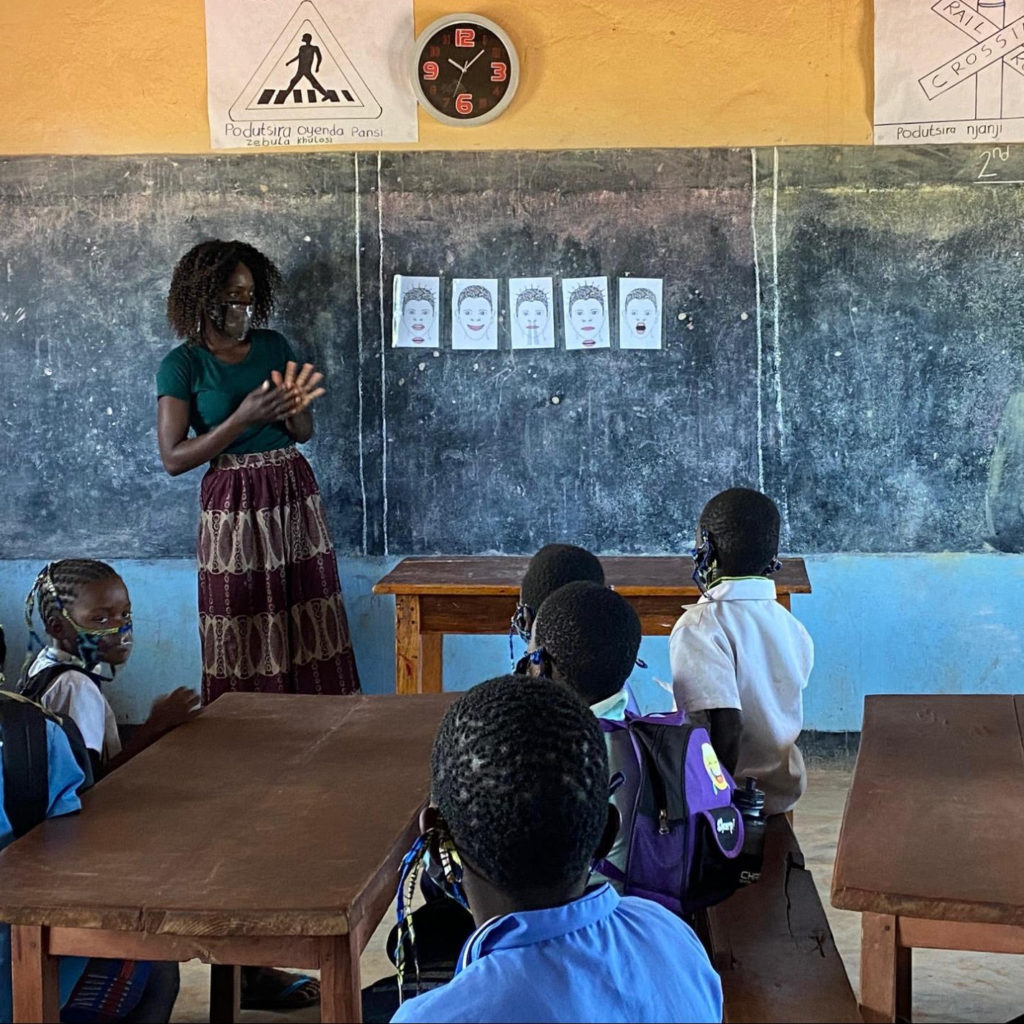
Source: Impact Network
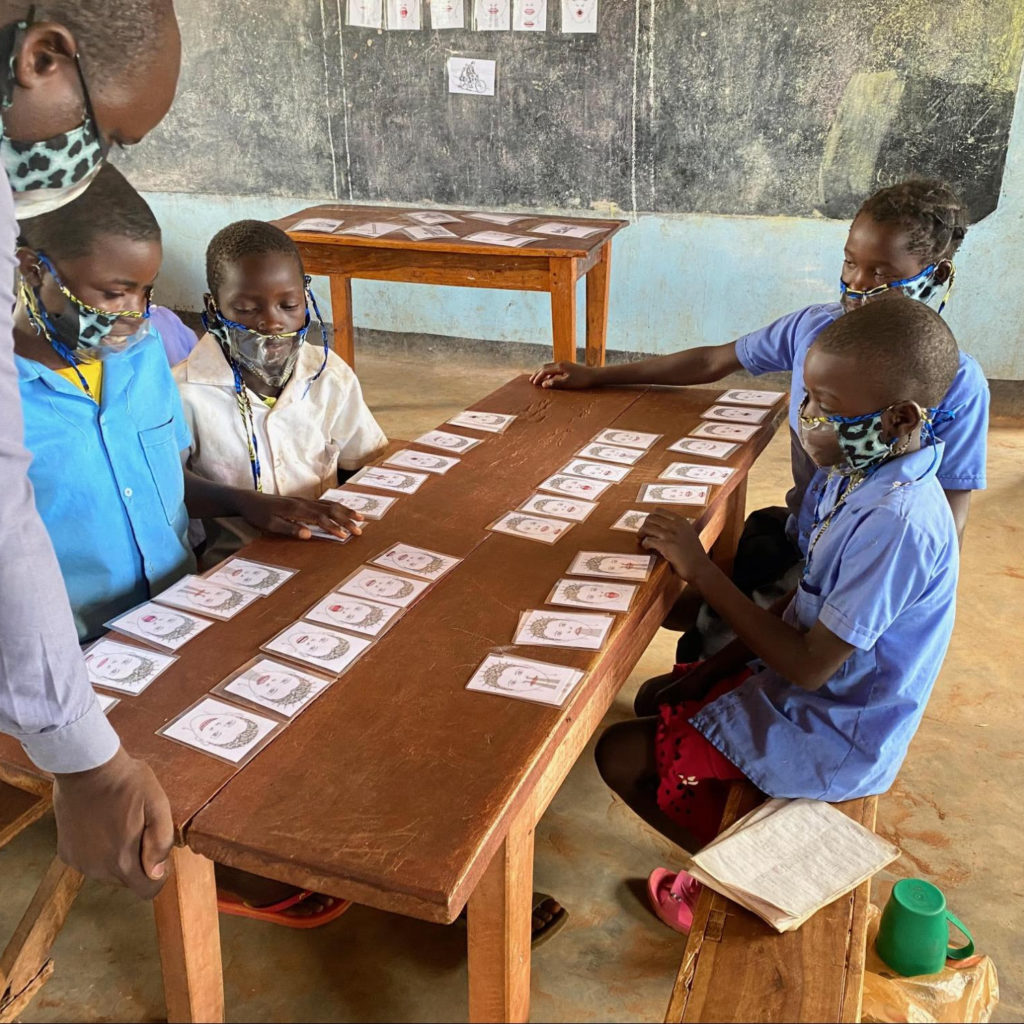
Source: Impact Network
Broadcast radio lessons in Sierra Leone sharpened during Covid-19
EducAid is a network of free schools in Sierra Leone for children with limited options for a high-quality education. CEO Erin Northey believes that crises can narrow and sharpen decisions for leaders because “difficult situations make boundaries and priorities clear.”
As schools transitioned to distance learning during Covid-19 lockdowns, EducAid teachers created nationally broadcast radio lessons in partnership with the government of Sierra Leone’s Teaching Service Commission. The broadcasts reached over 1 million children.
Because teachers were included in planning sample lessons and exemplar scripts, lesson quality improved from the radio teaching program launched during the Ebola epidemic in 2014. Additionally, the broadcasts served as professional development for teachers who tuned in and heard excellent teaching.
Innovations like this emphasize the professionalization of teachers, which is reinforced in communities when residents see children learning more and begin to value educators more strongly.
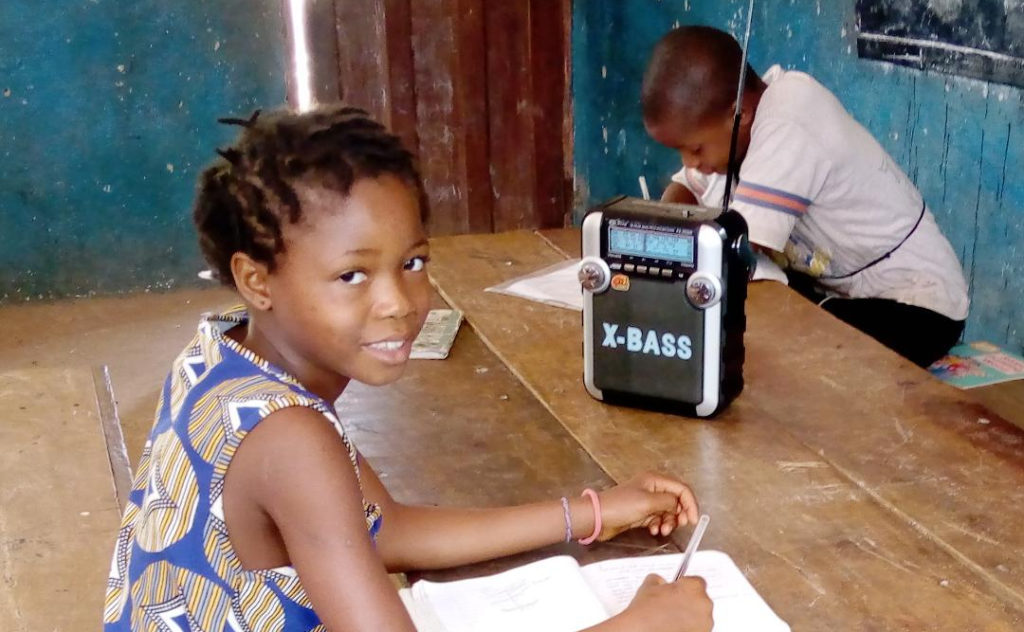
Source: EducAid Sierra Leone
Solving problems through teacher empowerment
The pandemic magnified and exposed existing inequalities and rigidities in the American public education system. But globally, some regions with higher poverty and far fewer resources have created lasting educational improvements by treating teachers as professionals who can develop and lead more effective methods of instruction.
American schools and districts face enormous challenges to help students recover from the pandemic, and they would be wise to follow these international examples to nurture resilience and innovation.


